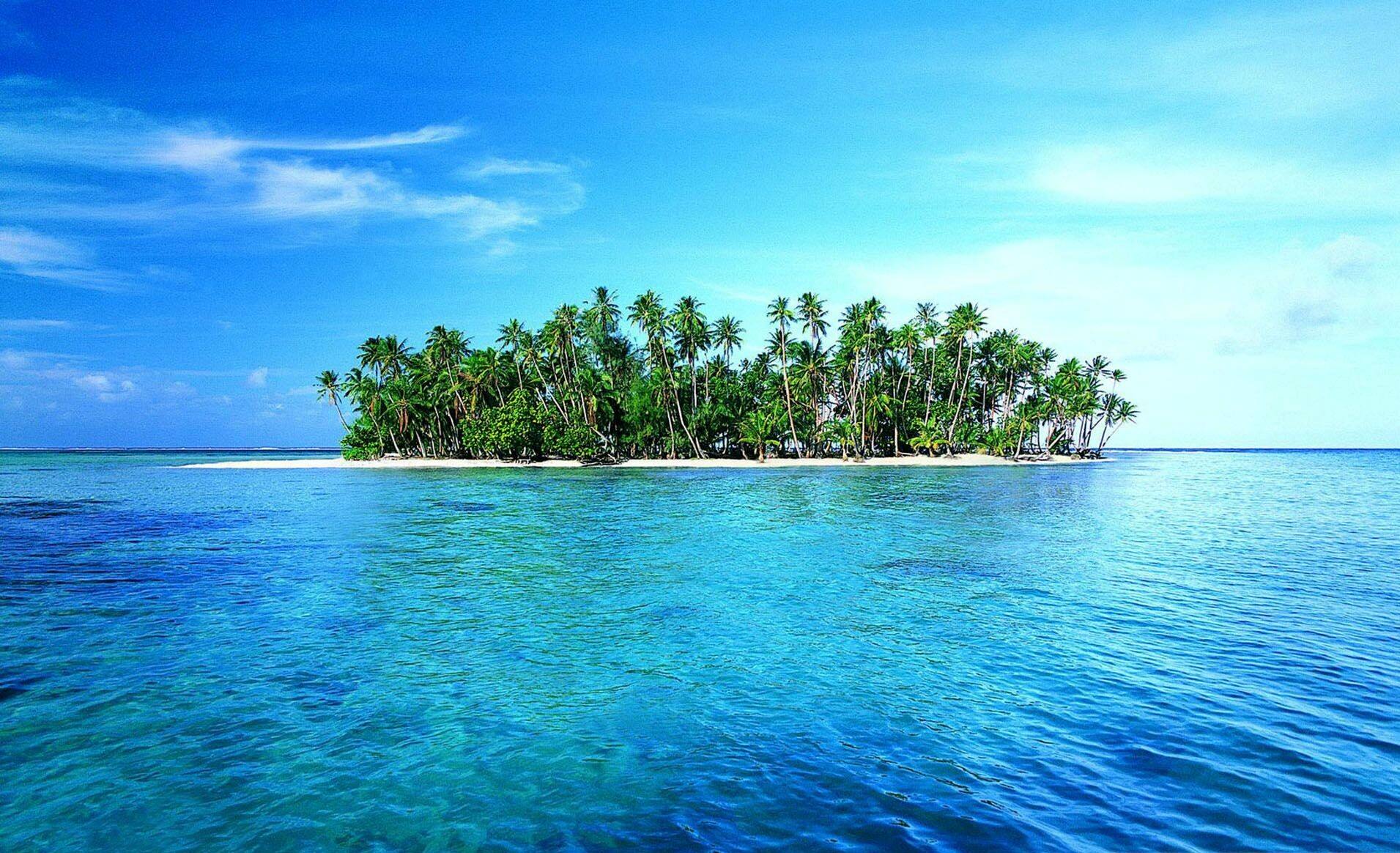
Islands have always captivated the imagination of explorers and travelers alike. With their pristine beaches, lush landscapes, and unique ecosystems, islands offer a perfect escape from the hustle and bustle of everyday life. But beyond their picturesque beauty, islands are also home to a wealth of fascinating facts and intriguing secrets.
In this article, we will delve into 19 incredible facts about islands that will leave you in awe of their natural wonders. From the world’s largest island to the most remote inhabited island, we will explore the diversity and magnificence that islands have to offer. So, sit back and embark on a journey through the enchanting world of islands.
Key Takeaways:
- Islands come in all shapes and sizes, from tiny atolls to vast continents. They offer unique ecosystems, rich cultural heritage, and are a magnet for tourists seeking relaxation and adventure.
- Islands have inspired great works of literature and art, and are often portrayed as symbols of isolation and escape. They provide refuge for endangered species and offer a world of intrigue and adventure.
The earth is home to millions of islands.
With over 180,000 islands scattered across the oceans, our planet is an archipelago paradise. From tiny secluded islets to expansive landmasses, islands captivate our imagination and offer unique ecosystems to explore.
Islands come in various sizes.
From the sprawling continents of Australia and Greenland to the small atolls of the Maldives, islands cover a wide range of sizes. The largest island in the world, Greenland, spans over 2.1 million square kilometers, while the smallest islands may only occupy a few square meters.
Some islands are formed by volcanic activity.
Volcanic islands, such as Hawaii and Iceland, emerge from the ocean as a result of volcanic eruptions. These islands boast dramatic landscapes, breathtaking mountains, and unique geological formations.
Others are created by coral reefs.
Coral atolls, like the Maldives and the Great Barrier Reef, are formed by the accumulation of coral skeletons over thousands of years. These stunning islands are renowned for their vibrant marine life and world-class snorkeling and diving opportunities.
The Galapagos Islands inspired Charles Darwin.
During his visit to the Galapagos Islands, Darwin observed the unique flora and fauna that eventually influenced his theory of evolution. These islands remain a living laboratory for scientific research and offer unparalleled biodiversity.
The largest island nation is Indonesia.
Comprising more than 17,000 islands, Indonesia holds the title for the largest archipelagic nation in the world. This diverse country offers a tapestry of cultures, landscapes, and captivating traditions.
Islands provide refuge for endangered species.
Many islands around the world serve as sanctuaries for endangered species. The Galapagos Islands, for example, are home to the Galapagos giant tortoise and numerous unique bird species.
Islands have unique ecosystems.
Isolated from mainland influences, islands develop distinct ecosystems with endemic plant and animal species. These fragile ecosystems are vulnerable to human impact and require conservation efforts to thrive.
There is an island with more penguins than humans.
On remote South Georgia Island, located in the southern Atlantic Ocean, the number of penguins heavily outweighs the human population. Thousands of penguins dot the shores, creating a mesmerizing spectacle for nature enthusiasts.
The Maldives is the lowest-lying country in the world.
Situated in the Indian Ocean, the Maldives boasts an average ground level of just 1.5 meters above sea level. This makes the island nation highly susceptible to rising sea levels and the effects of climate change.
The island of Bora Bora is a tropical paradise.
Bora Bora, a small island in French Polynesia, is renowned for its crystal-clear turquoise waters, stunning coral reefs, and luxurious overwater bungalows. It is a dream destination for honeymooners and beach lovers.
Islands can be formed by tectonic shifts.
Some islands, like Japan and New Zealand, are the result of tectonic plate movements. These dynamic landscapes are often characterized by mountainous terrain, hot springs, and geothermal activity.
The Maldives has the world’s first underwater cabinet meeting.
In 2009, to raise awareness about climate change and rising sea levels, the Maldives held the world’s first underwater cabinet meeting. The meeting took place on the ocean floor, with government officials wearing scuba diving gear.
Islands have rich cultural heritage.
From the ancient ruins of Greece’s Santorini to the mystical traditions of Easter Island, islands have a rich tapestry of cultural heritage. They often bear witness to centuries-old civilizations and offer insights into our shared history.
Hawaii is home to the world’s most active volcano.
The Big Island of Hawaii is where you’ll find Kilauea, one of the world’s most active volcanoes. Its frequent eruptions provide a dramatic display of nature’s raw power and shape the island’s ever-changing landscape.
Islands attract tourists from around the globe.
With their stunning beaches, vibrant marine life, and unique landscapes, islands are a magnet for travelers seeking relaxation and adventure. From the Maldives to the Seychelles, millions of tourists flock to these tropical paradises each year.
Islands have inspired great works of literature and art.
Countless novels, poems, and paintings have been inspired by the allure and mystique of islands. From Shakespeare’s “The Tempest” set on a secluded island to the mesmerizing seascapes of Claude Monet’s “Water Lilies,” islands have fueled creativity throughout history.
Some islands have ancient ruins.
Islands like Sicily in Italy and Delos in Greece boast ancient ruins that are testaments to the civilizations that once flourished there. These archaeological sites offer a glimpse into the past and tell stories of ancient cultures.
Islands are often portrayed as symbols of isolation and escape.
From the mystical island of Avalon in Arthurian legend to the fictional island of Lilliput in “Gulliver’s Travels,” islands have long held a symbolic place in literature and popular culture. They can represent places of seclusion, new beginnings, or even imprisonment.
As you can see, islands offer a world of intrigue and adventure. Whether you’re exploring their unique ecosystems, indulging in their cultural heritage, or simply basking in their natural beauty, islands have a magnetic allure that continues to captivate us.
Conclusion
Islands are fascinating and diverse ecosystems that offer a plethora of natural wonders to explore. From their unique wildlife to stunning landscapes, there is always something remarkable to discover on an island. Whether you’re looking for adventure, relaxation, or simply want to connect with nature, islands provide an unforgettable experience.
Take the time to immerse yourself in the beauty of an island, appreciate its delicate balance of flora and fauna, and witness the awe-inspiring power of the natural world. Whether you’re exploring the lush rainforests of Borneo, snorkeling in the crystal-clear waters of the Maldives, or hiking along the volcanic trails of Hawaii, each island has its own charm and allure.
So, whether you’re a nature enthusiast, an adventure seeker, or simply someone who appreciates the breathtaking beauty of our planet, set foot on an island and let its wonders captivate your senses.
FAQs
Q: How are islands formed?
A: Islands can be formed through various processes such as volcanic activity, tectonic plate movements, or even due to changes in sea levels.
Q: Are all islands surrounded by water?
A: Yes, all islands are surrounded by water, be it oceans, seas, lakes, or rivers.
Q: Can animals migrate to and from islands?
A: Yes, certain animals can migrate to and from islands, either by flying, swimming, or through human intervention.
Q: Do all islands have unique ecosystems?
A: Yes, islands often have unique ecosystems, as they tend to be isolated and have distinct environmental conditions, leading to the evolution of endemic species.
Q: Can you visit uninhabited islands?
A: In some cases, yes. However, it’s important to research and obtain necessary permissions, as some uninhabited islands may be protected or have restricted access.
Q: Are all islands destinations for tourists?
A: Not all islands are destinations for tourists. Some islands may be remote, inaccessible, or have limited infrastructure for tourism.
Q: Are there any dangers associated with visiting islands?
A: Like any natural environment, there can be certain dangers associated with visiting islands, such as extreme weather conditions or wildlife encounters. It’s important to be prepared and follow any safety guidelines.
Q: Can islands be affected by climate change?
A: Yes, islands are particularly vulnerable to the effects of climate change, including rising sea levels, coral bleaching, and changing weather patterns.
Q: Do all islands have beaches?
A: Not all islands have beaches. Some islands may have rocky coastlines, cliffs, or even volcanic formations.
Q: Can you find historical and cultural sites on islands?
A: Absolutely! Many islands have a rich history and cultural heritage, with ancient ruins, traditional villages, and archaeological sites waiting to be explored.
Was this page helpful?
Our commitment to delivering trustworthy and engaging content is at the heart of what we do. Each fact on our site is contributed by real users like you, bringing a wealth of diverse insights and information. To ensure the highest standards of accuracy and reliability, our dedicated editors meticulously review each submission. This process guarantees that the facts we share are not only fascinating but also credible. Trust in our commitment to quality and authenticity as you explore and learn with us.


